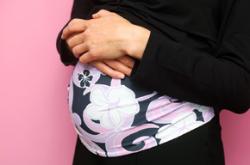Effects of lead poisoning during pregnancy
 A pregnant woman's past or present exposure to lead puts her unborn baby at risk. When she breathes in or swallows lead, it goes into her blood. Once the lead is in the bloodstream, it passes through the placenta into the baby and into the baby's developing bones and other organs. If a pregnant woman has had past exposure to lead, her body may store the lead in her bones and teeth. If the pregnant woman's diet does not contain enough calcium, the body may substitute lead in the her bones for the calcium that the baby needs. Lead exposure can affect the unborn child's brain, causing developmental problems later in life. Fetuses exposed to lead before birth may be born early or underweight.
A pregnant woman's past or present exposure to lead puts her unborn baby at risk. When she breathes in or swallows lead, it goes into her blood. Once the lead is in the bloodstream, it passes through the placenta into the baby and into the baby's developing bones and other organs. If a pregnant woman has had past exposure to lead, her body may store the lead in her bones and teeth. If the pregnant woman's diet does not contain enough calcium, the body may substitute lead in the her bones for the calcium that the baby needs. Lead exposure can affect the unborn child's brain, causing developmental problems later in life. Fetuses exposed to lead before birth may be born early or underweight.
Pregnant women should talk with their doctor about how to minimize exposure of lead to the fetus. Because a fetus' blood lead level matches its mother's blood lead level, it is important for the mother to know if she has had recent exposure to lead. If there has been exposure, which a blood lead test can determine, it is important to find out where in the environment the exposure is coming from and to avoid or eliminate that lead hazard. Unfortunately, there is no medical treatment universally recommended for pregnant women with elevated lead levels. Good nutrition, however, and avoiding contact with lead, are steps the mother can take to protect herself and her baby from lead. There are also preventative measures a family can take in preparation for a new baby.
The Centers for Disease Control Lead Pregnancy Report for 2010 provides information for physicians and others who are concerned about the negative effects that exposure to lead can have on pregnant women and their developing fetus, as well as on infants and children. Listen to the podcast that addresses the highlights of the report.

